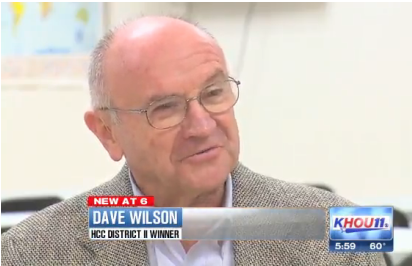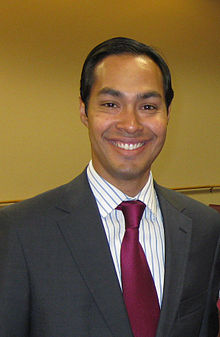The Houston Press returns to an old favorite.

“I’ve been sued every year by [JW Marriott],” says Michael Amezquita, the fiery chief appraiser of the Bexar County Appraisal District, which is currently facing $10.3 billion in appraisal-reduction litigation compared to the annual $4 billion to $5 billion average. In the 2011 tax year, BCAD’s ten most expensive courtroom losses to class A commercial and industrial property owners resulted in an absence of $1.8 million in tax revenue for San Antonio-area school districts.
“Valero sues every year,” Amezquita adds. “H-E-B [based in San Antonio] is suing every year now. They never used to sue me before.” The Houston Press’s interview request with Bill Day of Valero’s media relations department in San Antonio fell on deaf ears.
Appraisal districts and property-tax experts say the uniform and equal (sometimes called “equity”) provision, cemented into the Texas Constitution in 1997 amid yawns from lawmakers, is the evil responsible for Texas’s defective property-tax system. Also known as the Taxpayer’s Bill of Rights, the statute created an annual circus in which big-money property owners and appraisal districts argue over how best to value the land, the sticks and the bricks, with the property owners almost always winning.
A 2011 study by Texas Comptroller of Public Accounts Susan Combs concluded that the state’s property-tax system generated more than $40 billion in revenue (or 47 percent of total tax revenue) in fiscal year 2011. There are billions of dollars on top of the $40 billion that should be there but aren’t, according to District 13 Senator Rodney Ellis. The Democratic lawmaker from Houston says that for every million dollars removed from the tax rolls, school districts, fire departments and emergency medical services are squeezed out of approximately $30,000.
The problem has been exacerbated by Texas’s absence of sales-price disclosure, which gives property owners a running start in property-tax disputes because appraisal districts must rely on private databases to procure sales numbers. Even then, it’s impossible to seize reliable data for every property — in 2013, HCAD was able to grab decent sales information on only 681 of Harris County’s 3,838 commercial transactions.
“Whoever heard of doing an appraisal without sales information?” says Amezquita. Idaho, Utah and Alaska — whose combined population is only 928,000 more than the total number of residents of Harris County — are the only other states that lock away all sales figures on taxable properties.
“It’s like boxing with one hand tied behind your back,” says former HCAD chief appraiser Jim Robinson, who retired from HCAD in May 2013 after serving 28 years at the agency. “What we see happening time and time again is tax consultants get everything that’s out there and they’ll pick a set of alleged comparables at the very bottom of the list and argue that they should be adjusted to that.”
What happens next, says Ellis, is that “as properties above the median are reduced to the target valuation, the median drops. The result is a constant and growing erosion of the tax base” on which Texas’s public-school finance channels are dependent.
[…]
The state tax code’s “remedy for unequal appraisal” section — the statute that has given central appraisal districts migraines for nearly 20 years — was added to the Texas Constitution in 1997, sans debate, after Representative Paul Hilbert offered the amendment in the waning moments of the 75th Texas Legislature.
“It was one of about 34 floor amendments offered that day…they said, ‘We’re just offering it for some technical cleanup,'” says Stewart, who has been working in appraisal litigation since 1985. “If I had been a member of the House and this had come up as a floor amendment with no fiscal notes or legislative comment, I would’ve voted for it. It was innocuous.”
Amezquita, in a phone interview with the Press, can rattle off the Section 42.26, Paragraph a3, provision from memory, nailing word after arbitrary word with heartfelt disgust: “The district court shall grant relief on the ground that a property is appraised unequally if the appraised value of the property exceeds the median appraised value of a reasonable number of comparable properties appropriately adjusted.”
Prior to 1997, property owners who took issue with an appraisal district’s value would protest based on Section 42.26, Paragraphs a1 and a2 — the part of the tax code that deals with appraisal ratio studies. Now “no one challenges on [paragraphs a1 and a2],” says Amezquita. “[Paragraph a3] is where the money is. Any blind monkey can win that deal. If I wanted to work for the other side, I could triple my money tomorrow.”
Since it was enacted, the law has been expanded in multiple sessions of the Texas Legislature, the most significant change coming in 2003, when “appropriately adjusted” was tacked onto the end of Paragraph a3. With the additional broad stroke of interpretation, ace lawyers have curried favor with the courts, leading an overwhelming majority of judges to side with property owners because there isn’t a definition of comparability in the tax code.
“Nobody has to use the yardstick of market value to keep you honest. They can just get an appraiser — and there are plenty of them out there who are hungry — to come in and pick properties,” says Stewart. “The way the courts are interpreting the statute, they say that’s permissible, and that’s what created the problem.”
Along with the state’s lack of sales-price disclosure, Stiefer says that Texas prohibits its appraisers from auditing any and all sales transactions. “This means the playing field isn’t level,” says Stiefer. “A homeowner can’t hide her house, but businesses can — and do — hide assets.”
West Virginia, Illinois, Mississippi, Louisiana and Arkansas also ensure equity among taxpayers in their respective state constitutions. However, none of those states boasts the complex mix of properties, population size or big-money dealings that Texas has.
“This isn’t a Democrat or Republican thing. This has been going on since 1997,” Amezquita says. “It’s not a tax policy. This is nothing more than a scam.”
I’ve blogged about this before; that first link is about the last time the Press covered this story, on the subject of how HCAD is much tougher on homeowners than on commercial properties. This is mostly a legislative problem – the lack of sales price disclosure plus the legal standard that’s allowable for the appraisal lawsuits (read the story for the details) make it ridiculously easy for corporations and other large property owners to get ludicrously undervalued appraisals, which greatly cuts their taxes and starves government at every level of revenue. The Legislature could fix this – as it happens, Wendy Davis filed a bill that would have addressed the latter issue, but it didn’t make it out of committee. We’ve spent a lot of time talking about school finance in this space, and this is an underappreciated part of the problem, as the system is rigged to ensure that school districts get less than they should. It’s yet another issue you should keep in mind when you go to vote this year. Actually, given the dynamic of this year’s election, it’s another issue you should use to remind off-year non-voters why we need them to show the heck up this fall. However you want to look at it, we’re getting screwed. The good news is that we do have the power to fix it, if we care to.
As always when talking HCAD and property taxes, George Scott is your go-to source for the bottom line. A couple of his posts to read on this:
HCAD’s Perverted ‘Golden Rule’ Of Uniform & Equal Value Practices: “Stick It Unto The Little Guys As The Big Guys Have Stuck It Unto Us”
Will Texas Democrats Adopt A Property Tax Political Strategy It Can Drive Into The ‘Republican Suburbs’ In November?’; They Are Fools If They Don’t
To that latter point, let me highlight this Dave McNeely column about Democratic candidate for Comptroller Mike Collier:
In researching Texas’ tax revenue situation and Hegar’s legislative record, Collier’s team found a linkage. A seemingly innocuous legislative tax law amendment in 1997 allowed property taxpayers to appeal to have their appraisals lowered to the “median” for “comparable” properties. Big businesses have more resources and financial incentive to appeal than do homeowners. But under the state’s school finance formula, that leaves it to homeowners and small businesses to make up the tax difference.
An analysis in 2006 showed a shift of $4 billion in tax responsibility — just for that year, Collier said. The lower appraisals also cut tax revenue for local governments like cities, counties and hospital districts.
“Texas is booming, yet our property tax bills keep going up while funding for roads, water and schools is falling way short,” Collier said. “Glenn Hegar is part of the problem.”
In 2013, SB 1342, by Sen. Wendy Davis — now the Democratic nominee for governor — would have required stricter standards for appealing appraisals, including preventing cherry-picking of “comparable” properties. The bill went to the Senate Finance Committee and was referred to the Fiscal Affairs Subcommittee — chaired by Sen. Hegar. There was a public hearing April 18, 2013.
Representatives of several school-associated groups and local governments testified for the bill. Representatives of several business and real estate associations opposed it. The Collier team found that those opponents had contributed $160,000 to Hegar’s campaign since 2006. The corrective bill never got a vote in Hegar’s subcommittee, and thus died.
Davis has been hitting multiple themes, mostly having to do with education and equal pay. I don’t know how much her campaign is interested in breadth versus depth, but however much her campaign talks about this, she can and should get some reinforcement from Collier on this. How much will depend in part on how much Collier can raise to get his message out and in part on how much coverage of actual policy matters Collier and others can get. The issue is there, and Democrats are aware of it. It’s a matter of how much traction they get.


























